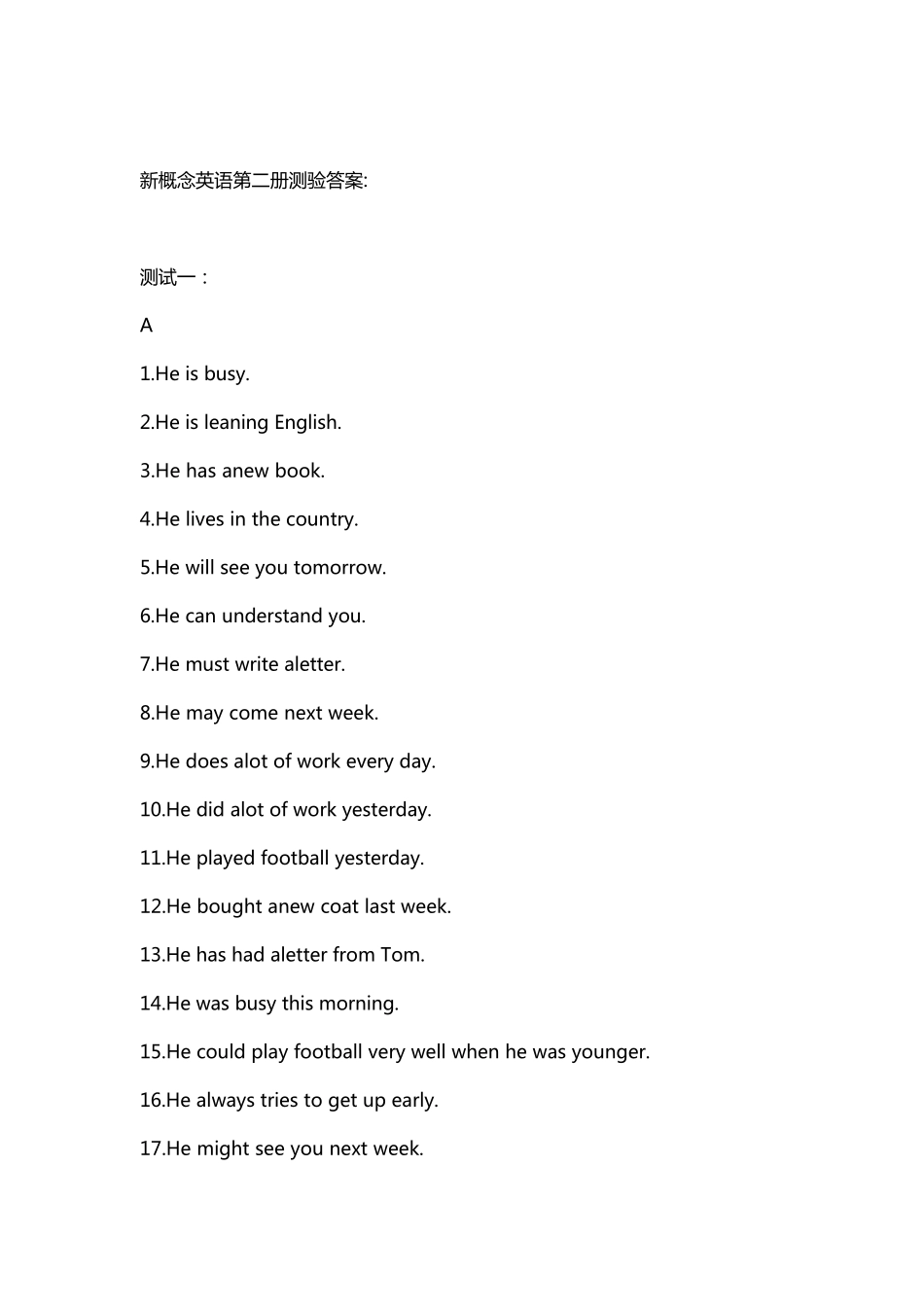新 概 念 英 语 第 二 册 测 验 答 案 : 测 试 一: A 1.He is busy. 2.He is leaning English. 3.He has anew book. 4.He lives in the country. 5.He will see you tomorrow. 6.He can understand you. 7.He must write aletter. 8.He may come next week. 9.He does alot of work every day. 10.He did alot of work yesterday. 11.He played football yesterday. 12.He bought anew coat last week. 13.He has had aletter from Tom. 14.He was busy this morning. 15.He could play football very well when he was younger. 16.He always tries to get up early. 17.He might see you next week. 18.He always enjoys agood film. 19.He had finished his work before you came. 20.He watches television every night. B 1.some 2.a 3.any 4.any 5.a 6.some 7.a 8.any 9.any 10.any C 1.I haven’ t got much butter. 2.You haven’ t got many cigarettes. 3.We haven’ t got much milk. 4.She hasn’ t got many biscuits. 5.They haven’ t got much stationery. D 1.bought 2.aired 3.lost 4.listened 5.emptied E 1.Q.Did he buy anew car?Q.What did he buy?N.He didn’ t buy anew car. 2.Q.Can she come tomorrow?Q.When can she come?N.She can’ t come tomorrow. 3.Q.Were they here yesterday?Q.When were they here?N.They weren’ t here yesterday. 4.Q.Must he leave early?Q.Why must he leave early?N.He mustn’ t leave early. 5.Q.Did he give you apen?Q.What did he give you?N.He didn’ t give you apen. 6.Q.Does he live next door?Q.Where does he live?N.He doesn’ t live next door. 7.Q.Do you know him well?Q.How well do you know him?N.You don’ t know him well. 8.Q.Has he found his pen?Q.What has he found?N.He hasn’ t found his pen. 9.Q.Did you see that film?Q.When did you see that film?N.You didn’ t see that film. 10.Q.Did he arrive at two o’ clock?Q.Whe...


